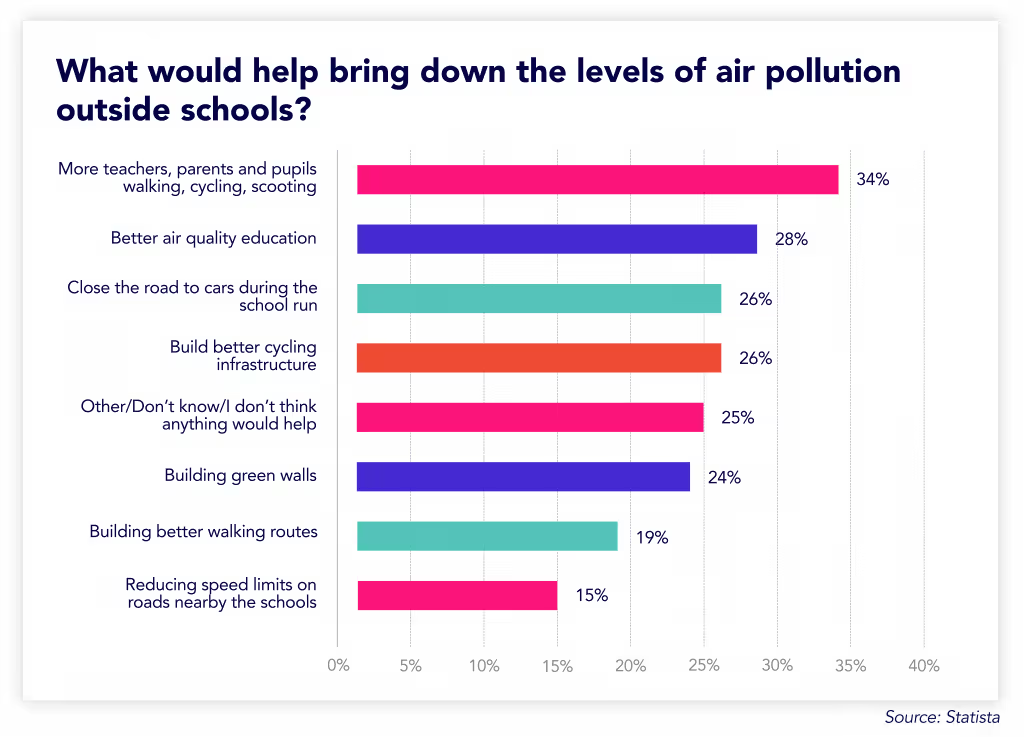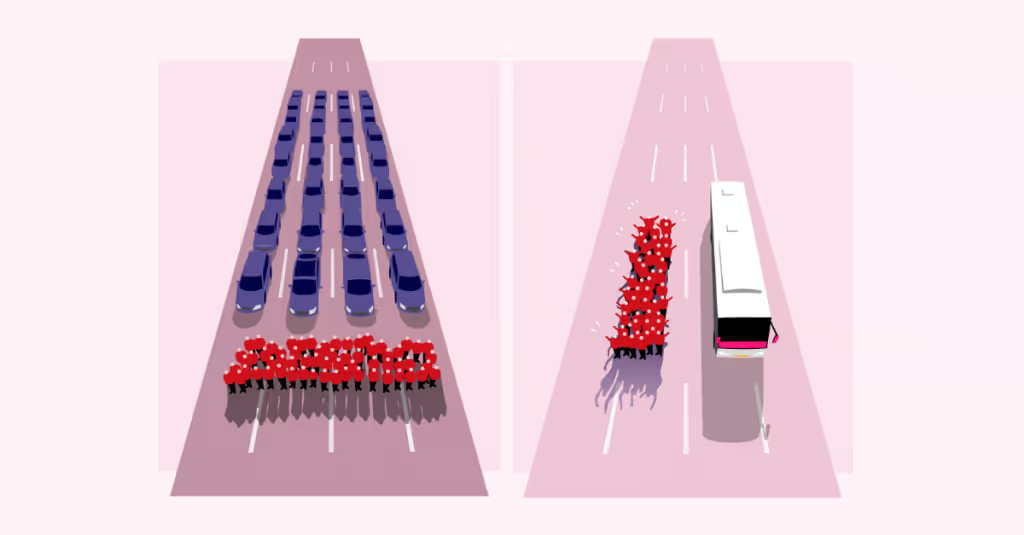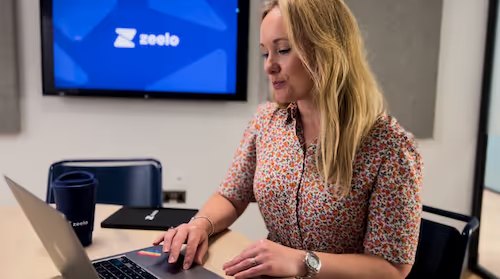Decrease Carbon Emissions with School Transport
.avif)
What do the students think about pollution and sustainability issues around their school? A recent poll carried out by walking and cycling charity Sustrans of 1,305 children aged six to 15 showed that nearly half (49%) are worried about the issue. That’s up 10% from a similar survey in 2018. What’s more, is that just over half (53%) believe adults do not listen to children’s concerns on the topic of climate change.

The above makes for some pretty worrying reading, but it is not all doom and gloom. Schools around the country are looking for new and sustainable ways in which students, parents and staff can travel to school to cut down on carbon emissions and reach sustainability goals.

How can school transport options make a difference?
What about cycling and walking? Without a doubt, the most effective way of reducing carbon emissions and congestion around schools is to encourage students and staff to cycle and walk to school. It’s the cleanest and cheapest way to travel and if everyone lived close enough there would be an incredible change in emissions and congestion. Unfortunately, that is not the case. Students are travelling from close and far to attend their school of choice. And with fewer parents choosing to educate their children privately, official figures show private school pupil numbers fell to a five-year low in 2019, schools are having to look further afield to grow admissions.
Could it be lift sharing? Companies like liftshare are doing great things to help pair together people headed in the same direction and remove unneeded cars off the road. Schools and Universities might consider how a lift club, or lift share programme may impact the congestion and CO2 levels around their locations. The limitations however may arise, due to scheduling conflicts, such as sports or after school programmes, sick days or even when a parent is unable to drive. And with the added unknown about when the pandemic will end, parents and students may be reluctant to share a vehicle without the proper safety measure onboard.
If not the car then what? The answer may be something that schools are very familiar with, but it’s the technology management platforms that are making the added difference. In theory coaches and buses can remove a number of cars from the road, but we know that with poor routing, unreliable service times and poor technology, parents and students are lacking the trust for such services. But what we are seeing today in the school transport industry is something to be excited about. Companies such as Zeelo, RideHip, and Via are using technology to power new and existing services to provide smart routing, improve student catchment areas and boost recruitment. Ticketless technology suchs as apps with live tracking. And up to date reporting on student numbers and CO2 saved.
The average smart coach service removes 30 vehicles from the road. In fact, by running just one service with a company mentioned above, schools could save you up to 5 tonnes of CO2 a month. This means less congestion around your school and less carbon emissions. Can you imagine a world with cleaner air and less cars around our schools? Because that is what we all want.

So what does the future of school transport look like?
With the pandemic here for the foreseeable future in some shape or form, transport will continue to need to be flexible and safe. The focus on sustainability will need to be looked at closer than ever, with 4.5 billion kg of CO2 being attributed to the school run annually.
- Smart routing, to maximise passenger access
- Paperless tickets, booking tools, online and via an app
- Reporting on passenger numbers and CO2 saved
- Contact Tracing, enabled by an app and customer support
- Contactless boarding, to adhere to social distancing rules with digital tickets on the app
- Vehicle tracking for the school and parents
- Cleaning and PPE measures
- Booking limits of passengers managed by technology if needed
- 24/7 customer support
- Access to all PSVAR compliant
Whatever the future looks like, one thing’s for sure. Schools now more than ever need to focus on the impacts the school run is having on congestion and CO2. We’re at a critical point and it is up to all of us to make the change for the better of not only the students but for ourselves
We help companies and schools achieve their transportation program goals
Corporate shuttles


Warehouse/Distribution


Schools & Universities


Become a partner


Want to know how we can help you?









.avif)

.avif)
.avif)